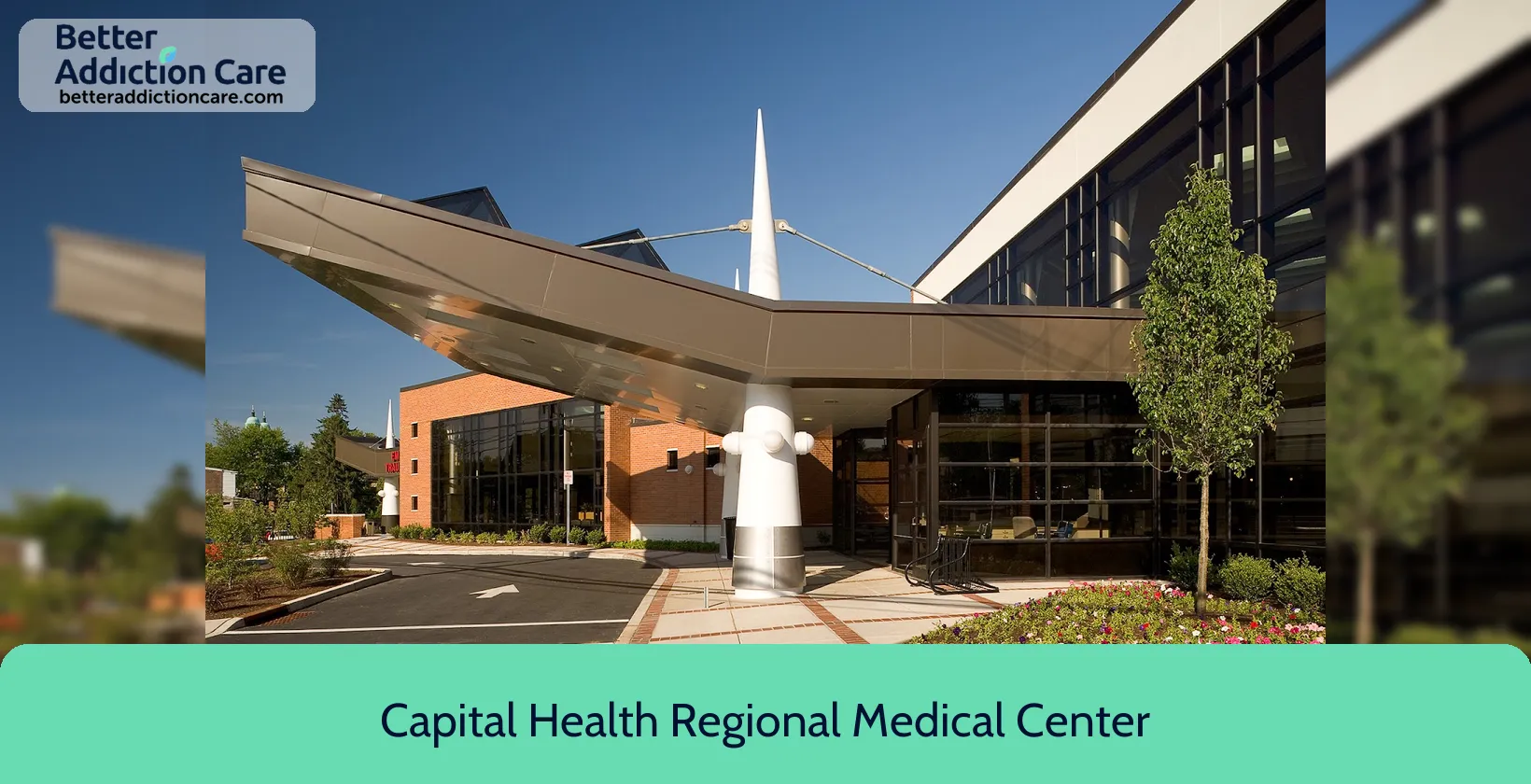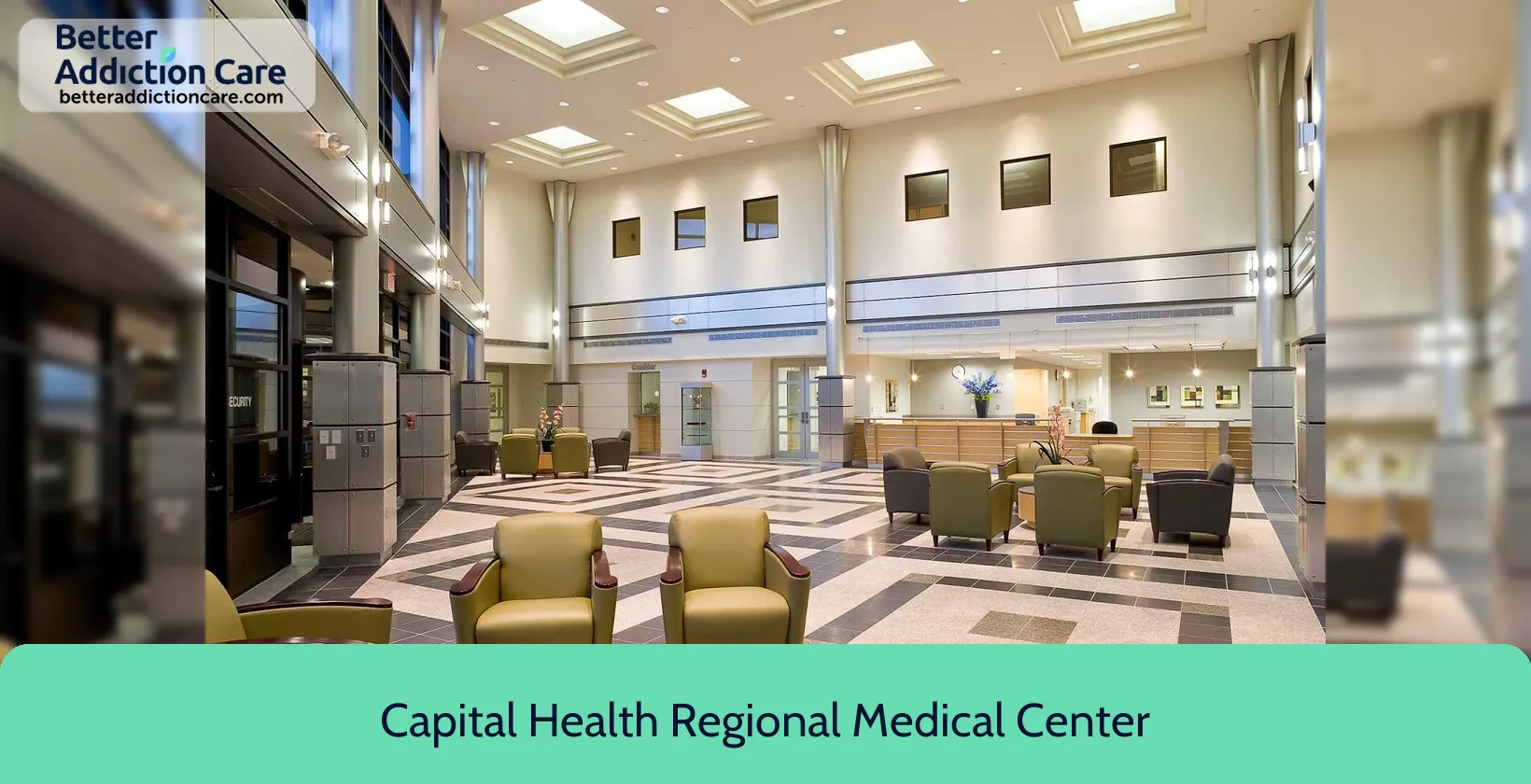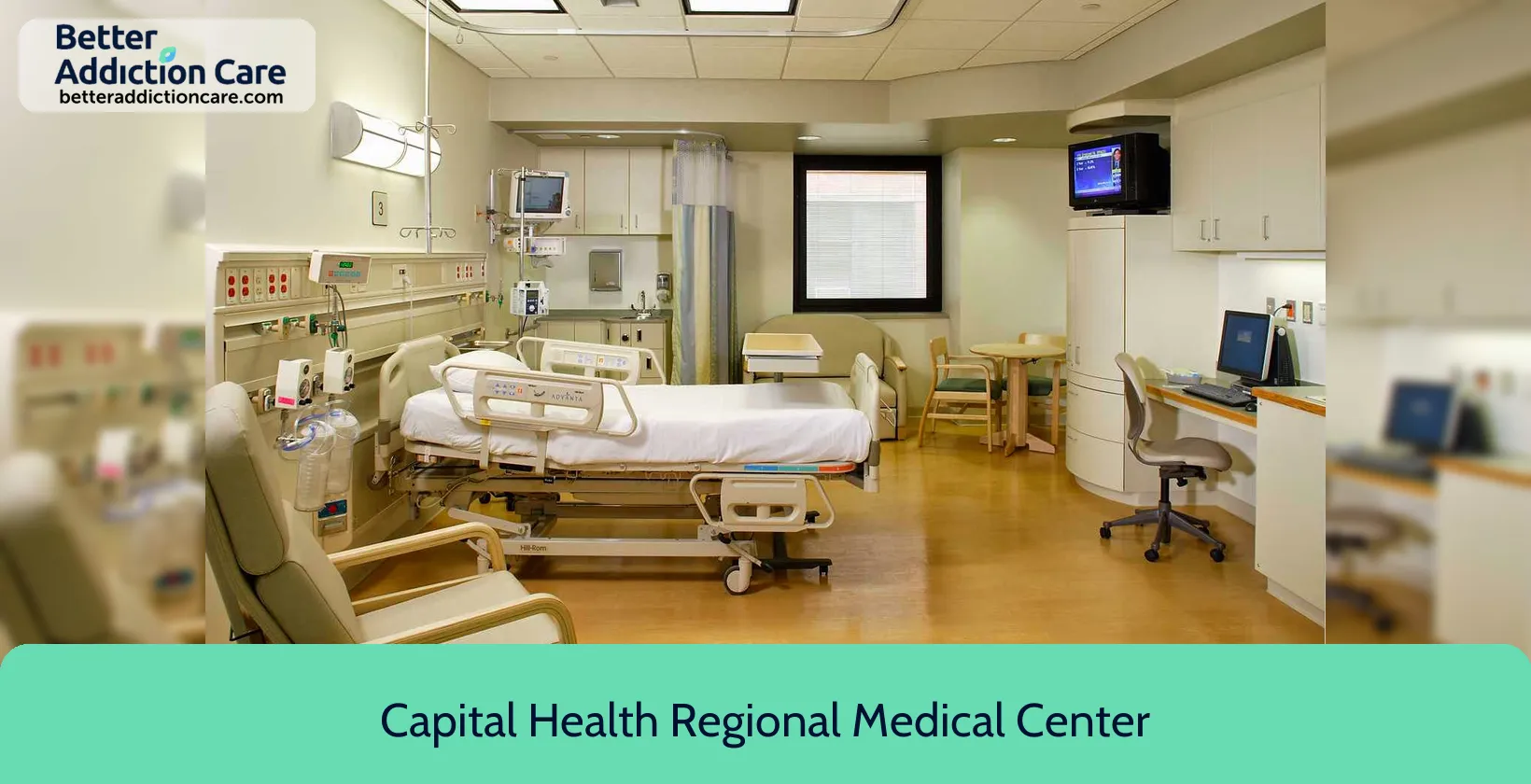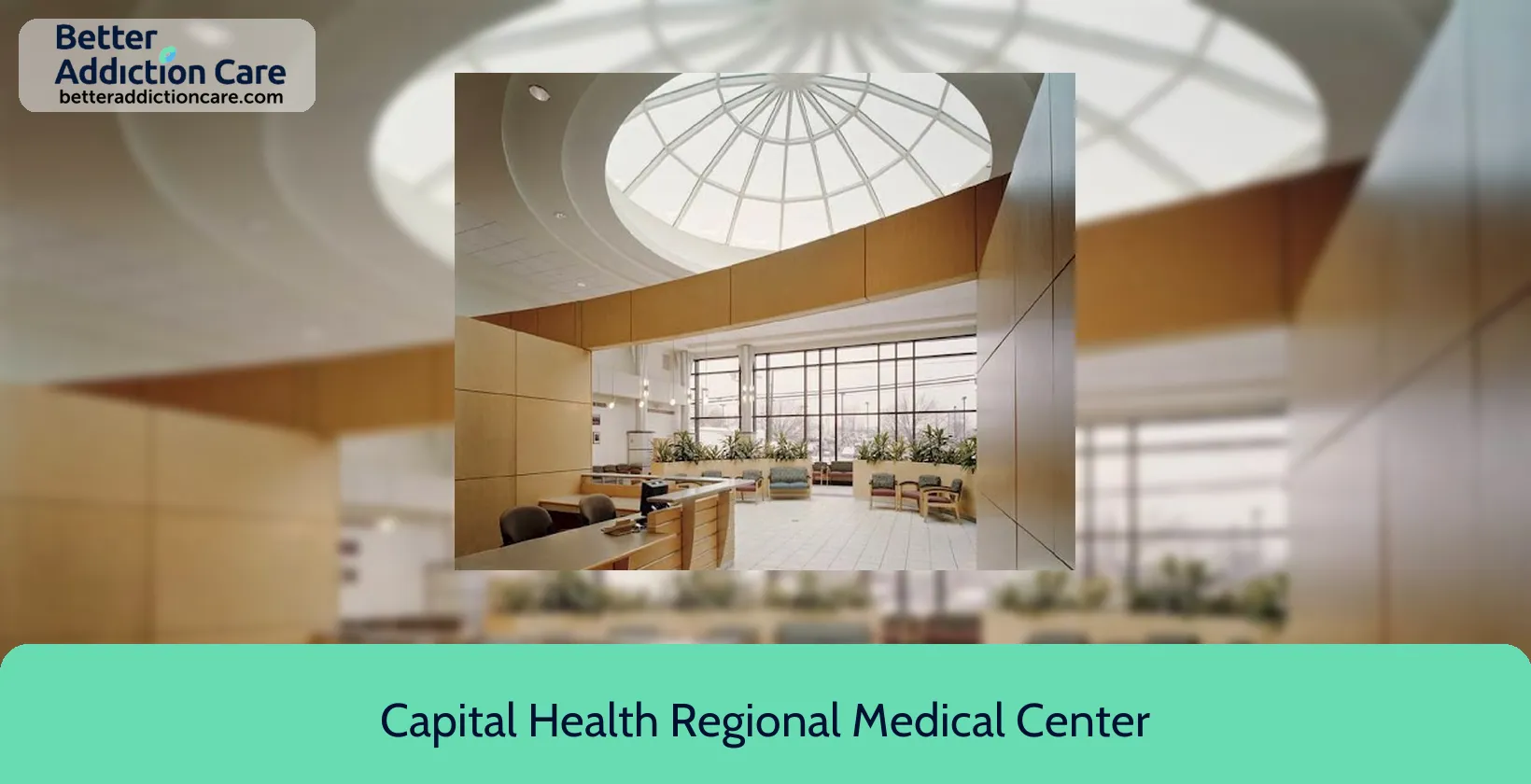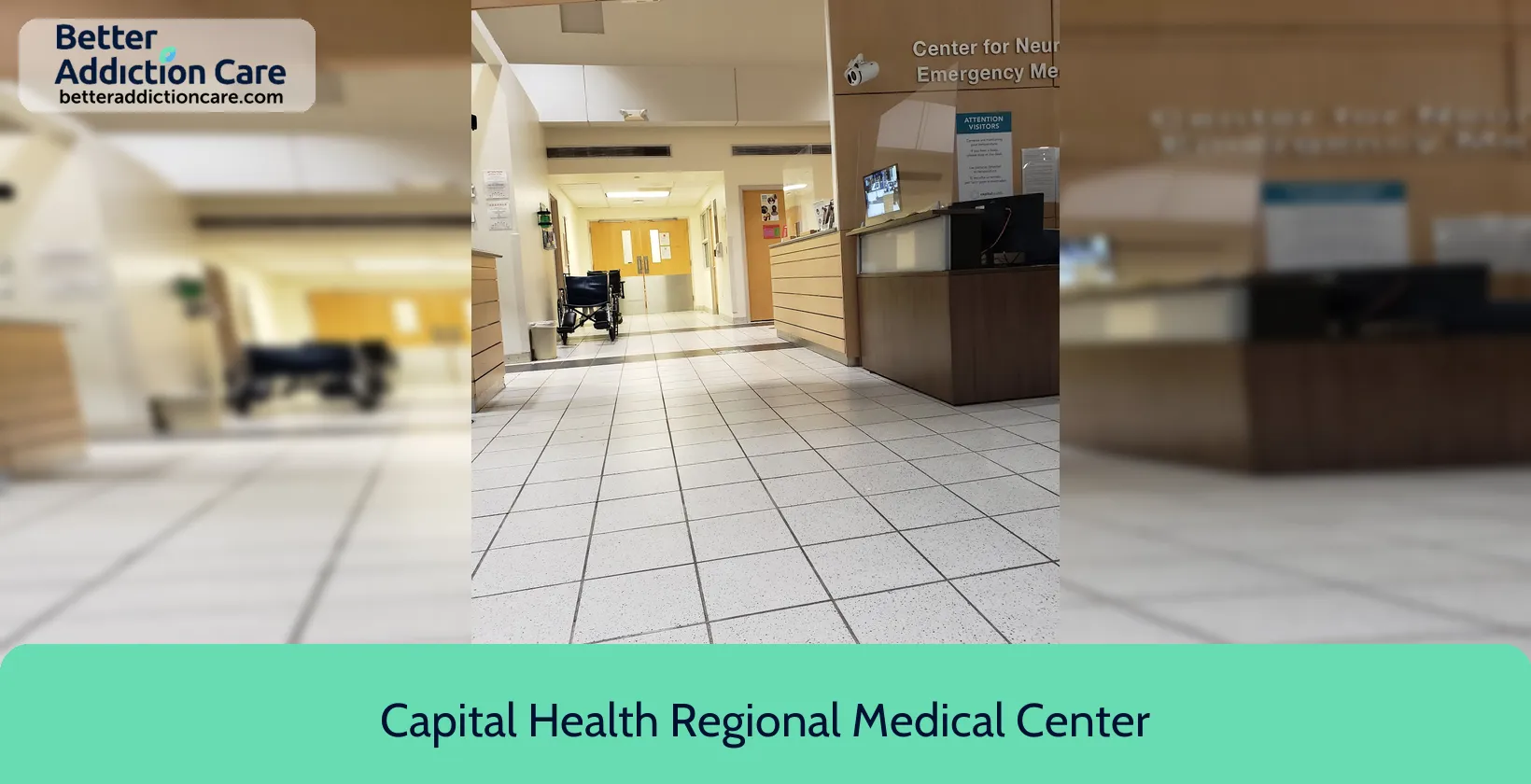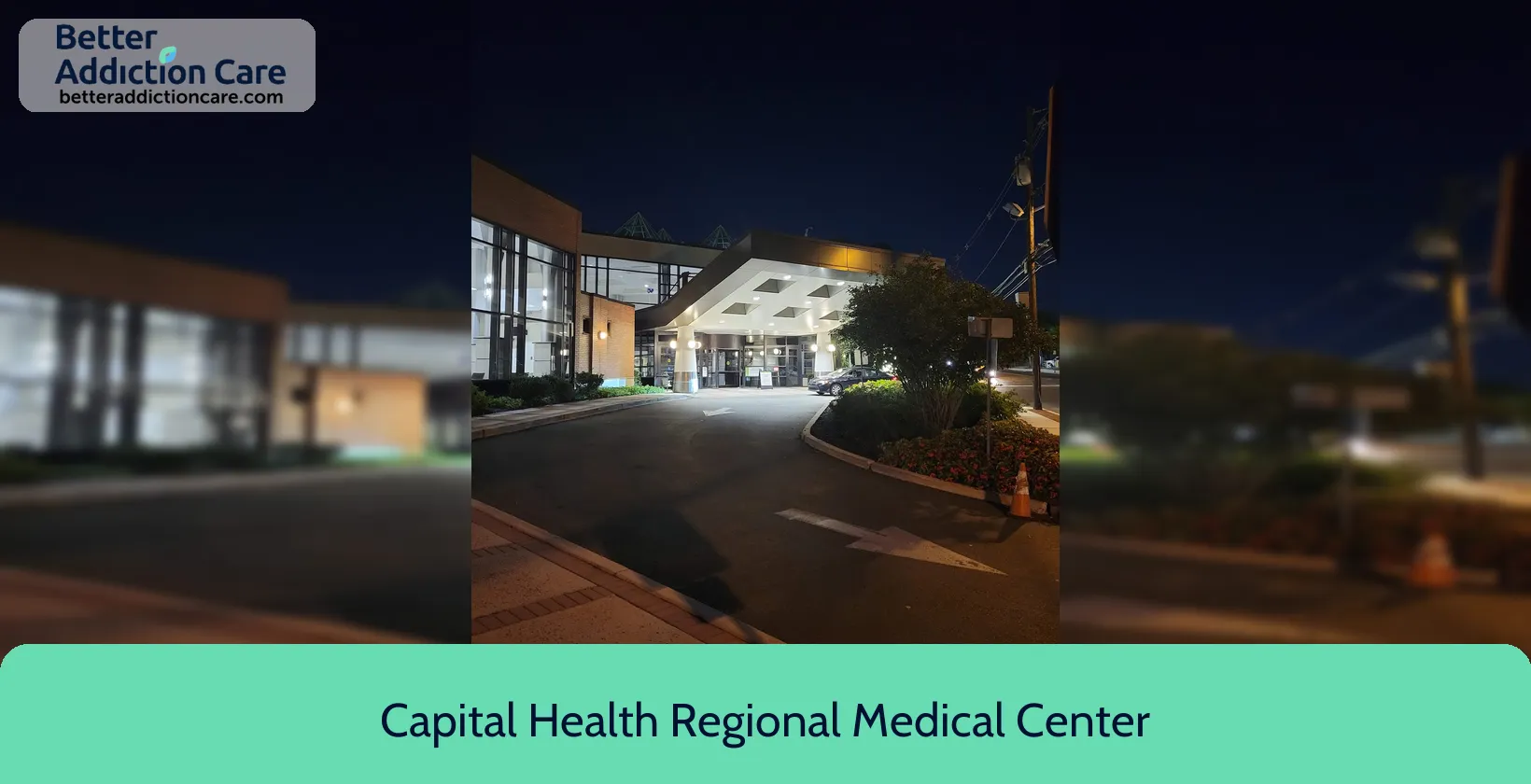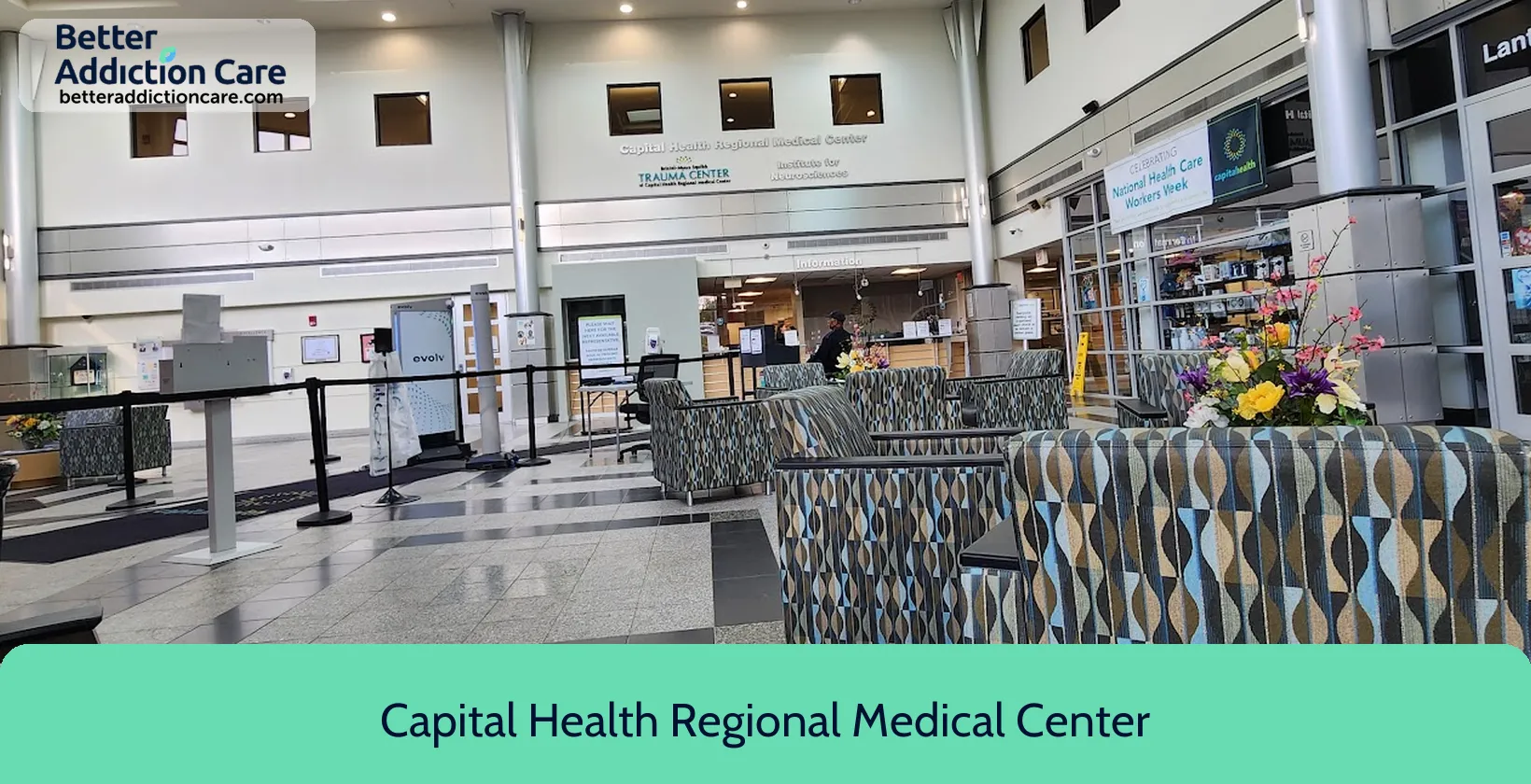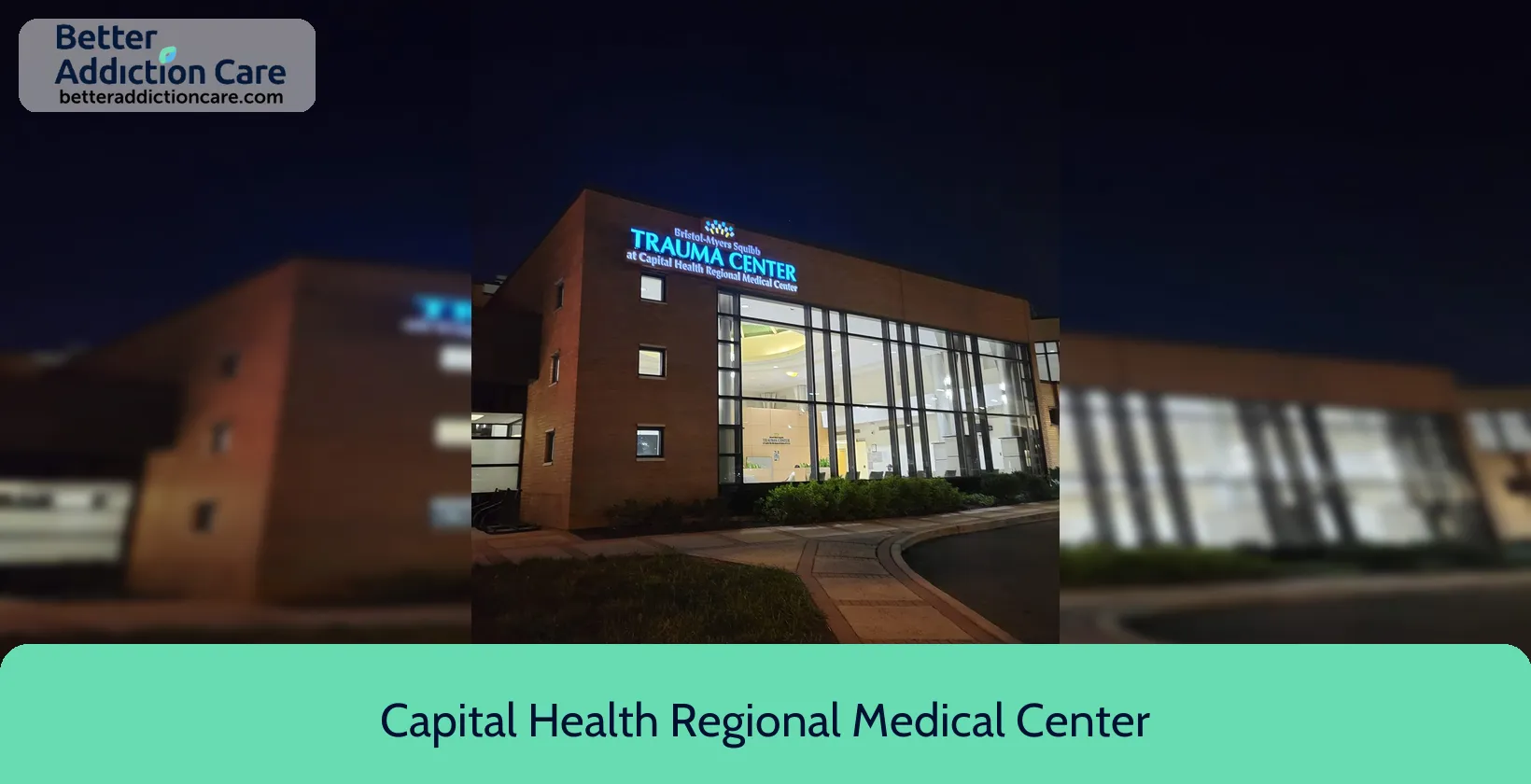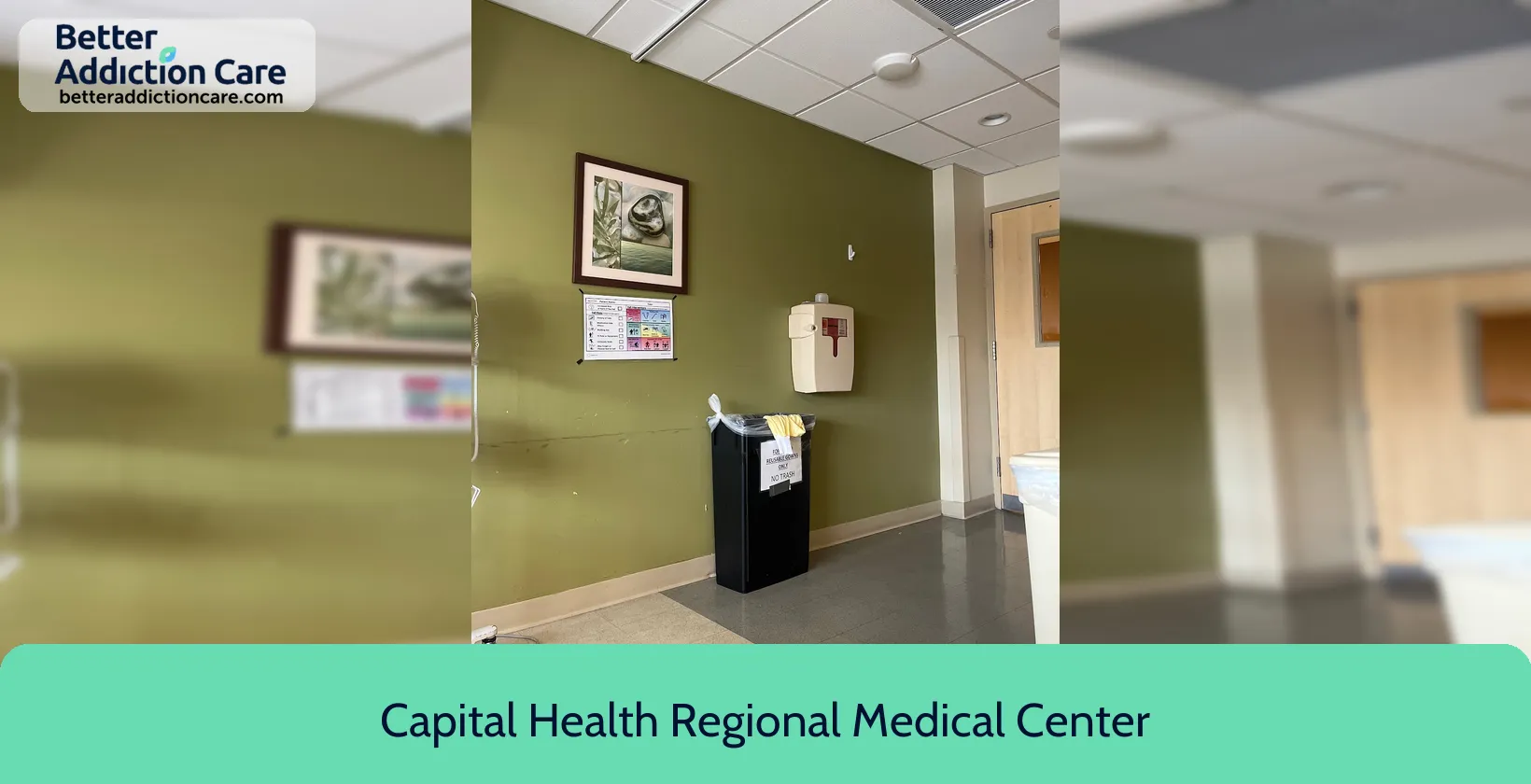Capital Health Regional Medical Center - Behavioral Health
Overview
Capital Health Regional Medical Center - Behavioral Health is a mental health treatment center for people seeking treatment near Mercer County. As part of their treatment modalities for recovery, Capital Health Regional Medical Center - Behavioral Health provides group counseling, integrated mental and substance use disorder treatment, and activity therapy during treatment. Capital Health Regional Medical Center - Behavioral Health is located in Trenton, New Jersey, accepting cash or self-payment for treatment.
Capital Health Regional Medical Center - Behavioral Health at a Glance
Payment Options
- Cash or self-payment
- Medicaid
- Medicare
- State-financed health insurance plan other than Medicaid
- Private health insurance
Assessments
- Screening for tobacco use
- Comprehensive mental health assessment
- Comprehensive substance use assessment
Age Groups
- Young adults
- Adults
- Seniors
Ancillary Services
- Diet and exercise counseling
- Education services
- Family psychoeducation
- Suicide prevention services
Highlights About Capital Health Regional Medical Center - Behavioral Health
6.59/10
With an overall rating of 6.59/10, this facility has following balanced range of services. Alcohol Rehabilitation: 8.00/10, Drug Rehab and Detox: 6.00/10, Insurance and Payments: 6.00/10, Treatment Options: 6.36/10.-
Alcohol Rehabilitation 8.00
-
Treatment Options 6.36
-
Drug Rehab and Detox 6.00
-
Insurance and Payments 6.00
Treatment At Capital Health Regional Medical Center - Behavioral Health
Treatment Conditions
- Mental health treatment
- Substance use treatment
- Co-occurring Disorders
Care Levels
- Hospital inpatient/24-hour hospital inpatient
Treatment Modalities
- Group counseling
- Integrated Mental and Substance Use Disorder treatment
- Activity therapy
- Smoking/vaping/tobacco cessation counseling
Ancillary Services
Languages
- Sign language services for the deaf and hard of hearing
- Spanish
Special Programs
- Clients with co-occurring mental and substance use disorders
- Clients who have experienced trauma
- Persons 18 and older with serious mental illness (SMI)
- Persons with post-traumatic stress disorder (PTSD)
Get Help Now
Common Questions About Capital Health Regional Medical Center - Behavioral Health
Contact Information
Other Facilities in Trenton

7.65

6.71

6.62

6.65

7.42

6.50

6.71

7.25
DISCLAIMER: The facility name, logo and brand are the property and registered trademarks of Rescue Mission of Trenton, and are being used for identification and informational purposes only. Use of these names, logos and brands shall not imply endorsement. BetterAddictionCare.com is not affiliated with or sponsored by Rescue Mission of Trenton.

